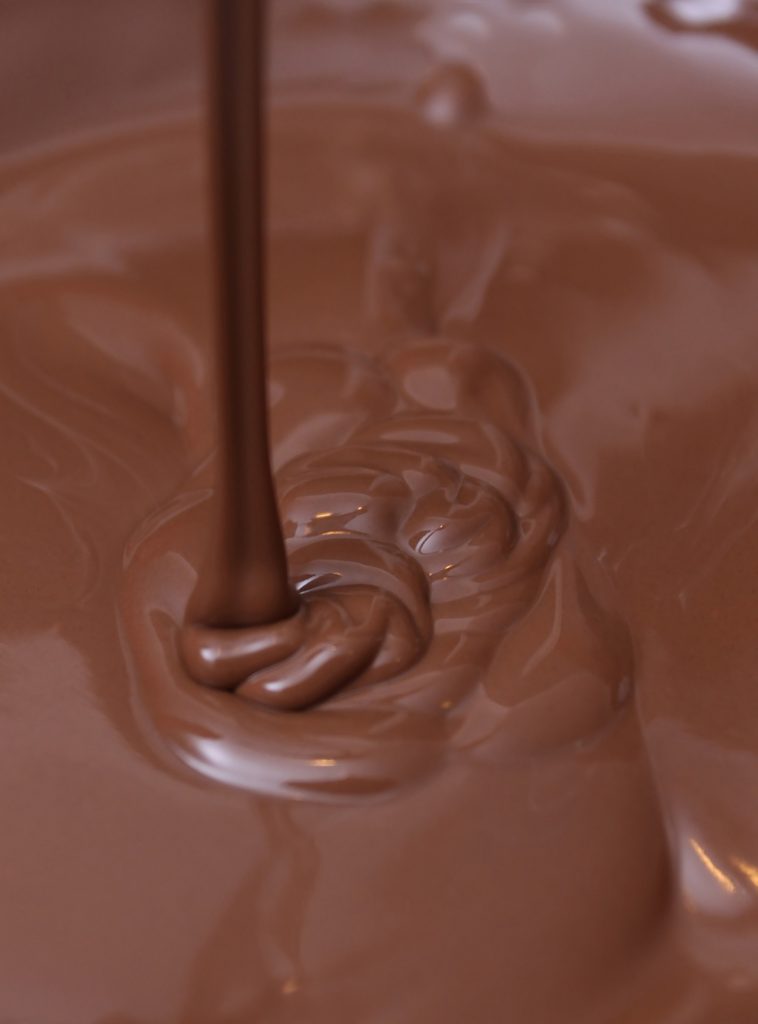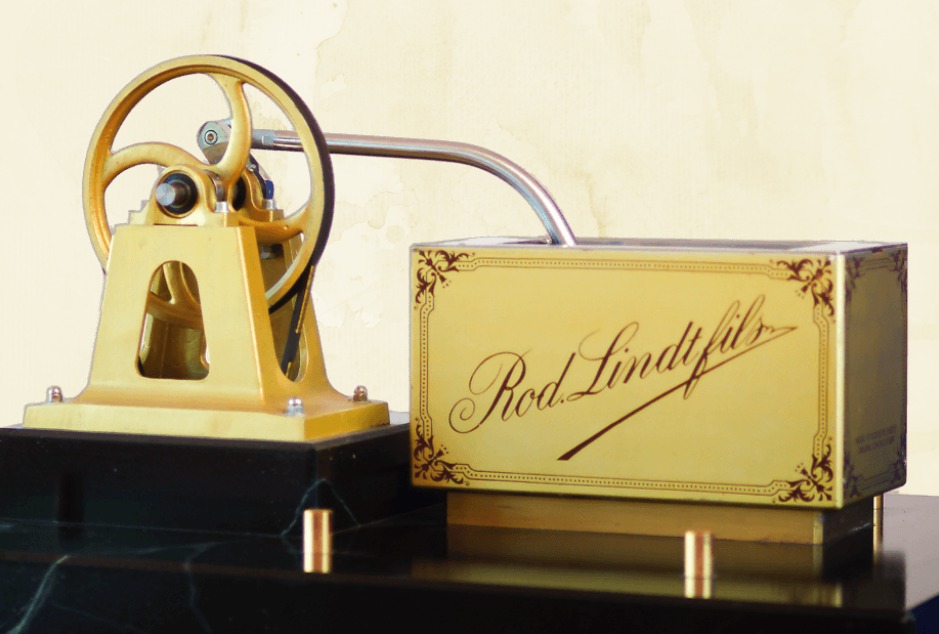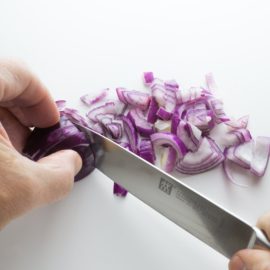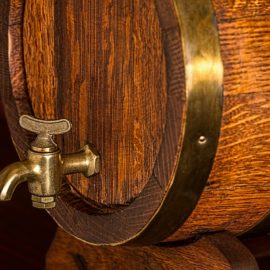
In bulk production of chocolate, milk or dark, conching is the endpoint or final operation. Basically, conching involves even distribution of cocoa butter within chocolate by mixing, agitating, and aerating. This is a very long process as it takes several hours to complete—8 to 36 hours. This depends on the machine or manufacturer preference. The conching temperature also varies. Generally, milk chocolates are treated at lower temperatures than dark chocolates.
But is conching chocolate important? The simple answer to this question is yes. Pure cocoa liquor has that typical chocolate taste that is bitter, acidic, and astrigent. Sure, this is a good choice for cooking. But for manufacturing chocolate bars or candies, there should be an extra step. Although the chocolate liquor already produced an emulsion after grinding and milling, the emulsion is not yet in its stable form. This is where conching comes in.
You might also like: Chocolate Bloom: What Causes It? Is It Safe?
Chocolate conching is important because it contributes to the development of flavor, viscosity, and final texture. To simply put, conching produces better tasting chocolate that melts smoothly in the mouth. The flavor development is influenced by the conching duration, speed, and temperature. The process also eliminates the unwanted bitter substances and off-flavors.
There are two fundamental types of conching processes: “wet” conching, in which all of the fat is added at the beginning, and “dry” conching, in which the fat level is maintained at around 23% during the majority of the operation.
If carried out properly, the process produces a liquid chocolate product called molten chocolate.
LINDT AND CONCHING
Conching was invented by Swiss chocolate maker Rudolf Lindt in 1879. Chocolate before the turn of the 20th century generally had granular texture and was gritty once solidified. It fact, it was hard to eat—you had to chew it. It would not melt in the mouth.
But Lindt turned chocolate a delicious treat when he forgot to turn off the mixing machine before leaving his factory on a Friday evening. The machine kept running over the weekend. Back to work on Monday morning, before his eyes was a silky smooth, shiny, and velvety melted chocolate. He was the first person to ever experience chocolate that melts in the mouth. Creating a much superior chocolate in terms of quality, Lindt introduced standards with the first melt-in-the-mouth- chocolate. Furthermore, he laid the foundation that revolutionized the chocolate industry.
Lindt’ original conche machine consisted of large stone rollers and granite trough, designed to stir and aerate the liquid chocolate. The conche’s design allowed sufficient surface area to let unwanted aromas to evaporate.
According to Lindt company, it is not certain whether his invention was intentional or not. But one thing is for sure though—conching makes better chocolate.

You might also like: How Does Tempering Chocolate Exactly Work?
To continue our discussion, let’s take a look at how conching is done.
THE CONCHING PROCESS
The conching process involves the use of coche. The word is derived from the latin word for ‘shell’. The reason for this is that the shape of traditional coche resembles that of a shell. In the modern chocolate industry, a typical conche consists of a large tank and 3 powerful intermeshing mixer blades. These blades provide the shearing and mixing action. The intense shear forces break down the clumps that form.
As the chocolate heats up, moisture escapes. This gives the chocolate the correct moisture balance, giving it a good melting texture. Conching also eliminates as much as 80% of the undesirable volatile aromatic compounds as heat mellows the flavor of the chocolate. In return, the amount of desirable volatiles increases with continuous heating and mixing as chocolate undergoes the Maillard reaction. Furaneol, pyrazines, and maltol give chocolates the caramel, roasted, and malty aromas during conching.
Conching times and temperatures vary, depending on the equipment and preference. Some manufacturers conche for 36 hours. The below table can be used as a guide.
| PRODUCT | CONCHING TIME | TEMPERATURE |
| Milk crumb | 10 to 16 hours | 120.2°F (49°C) to 125.6°F (52°C) |
| Milk powder products | 16 to 24 hours | Up to 140°F (60°C) |
| Dark chocolate | 16 to 24 hours | 158°F (70°C) to 179.6°F (82°C) |
As earlier mentioned, grinding and milling makes the chocolate an emulsion, but not a stable one. By conching the chocolate, the solid particles like sugar crystals, cocoa proteins, and carbohydrates are broken down into finer particles. The emulsion becomes stable and no longer gritty. Moreover, conching separates the hydrophilic particles so that cocoa butter may evenly coat each particle, resulting in the finished chocolate that melts smoothly.
Near the end of conching, two key ingredients are added in the chocolate: cocoa butter and lecithin, an emulsifier. The cocoa butter provides added lubrication for the sugar particles to make the mixture creamy and fluid, not pasty when it melts in the mouth. While lecithin assists in coating the sugar granules, which reduces the need for additional cocoa butter. The emulsifier and fat give chocolate a suitable viscosity prior to tempering.
References:
V. Vaclavik. E. Christian (2014). Essentials of Food Science (4th edition). Springer.
M. Gibson (2018). Food Science and the Culinary Arts. Academic Press.
E. Afoakwa (2016). Chocolate Science and Technology. Blackwell Publishing.


